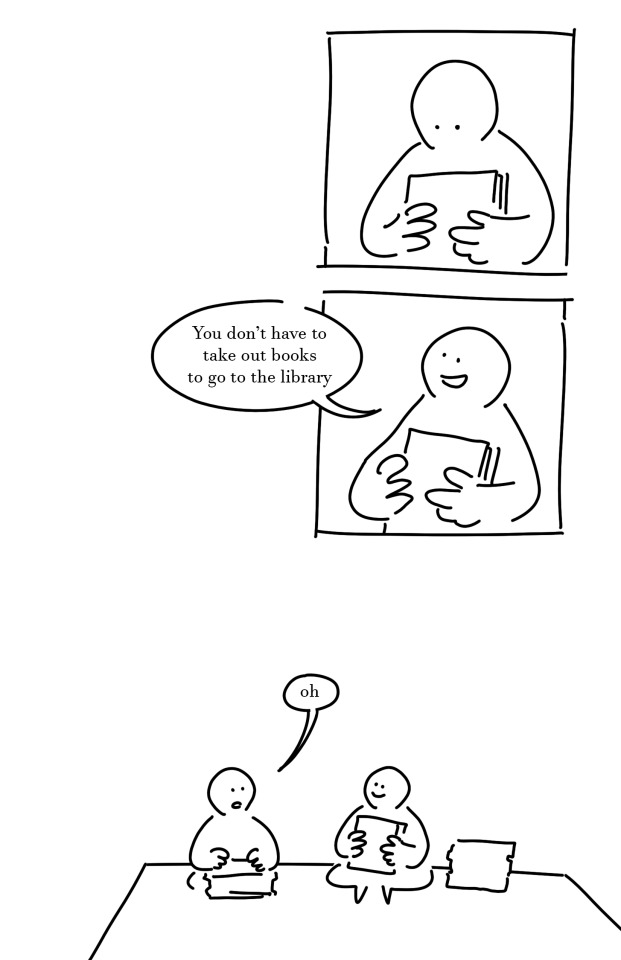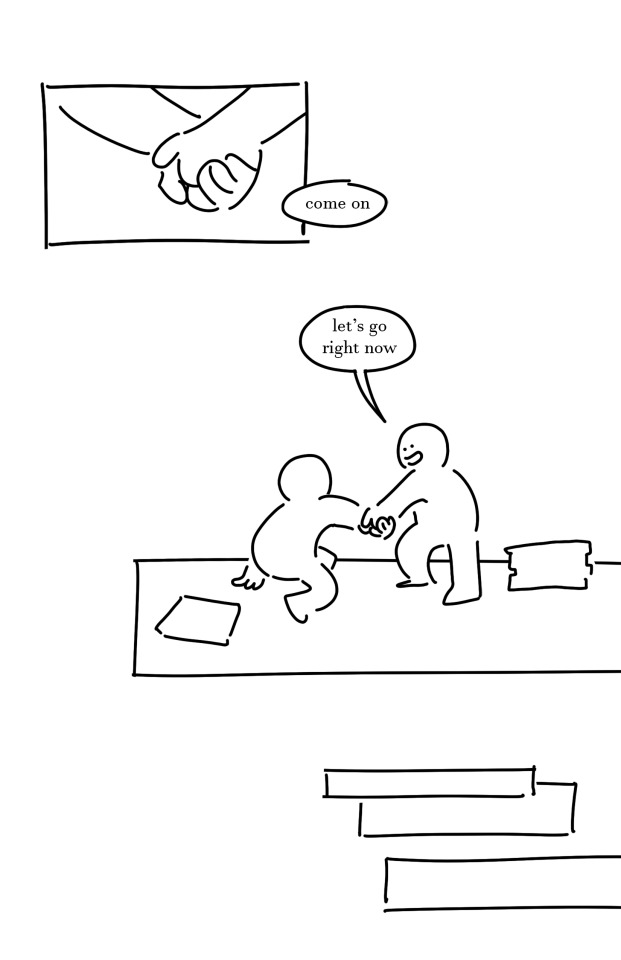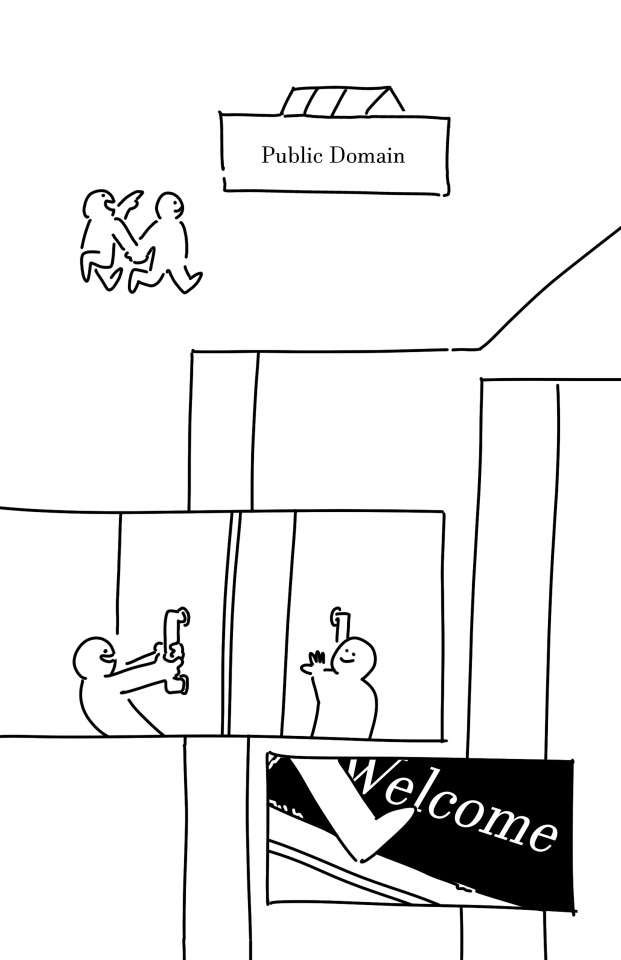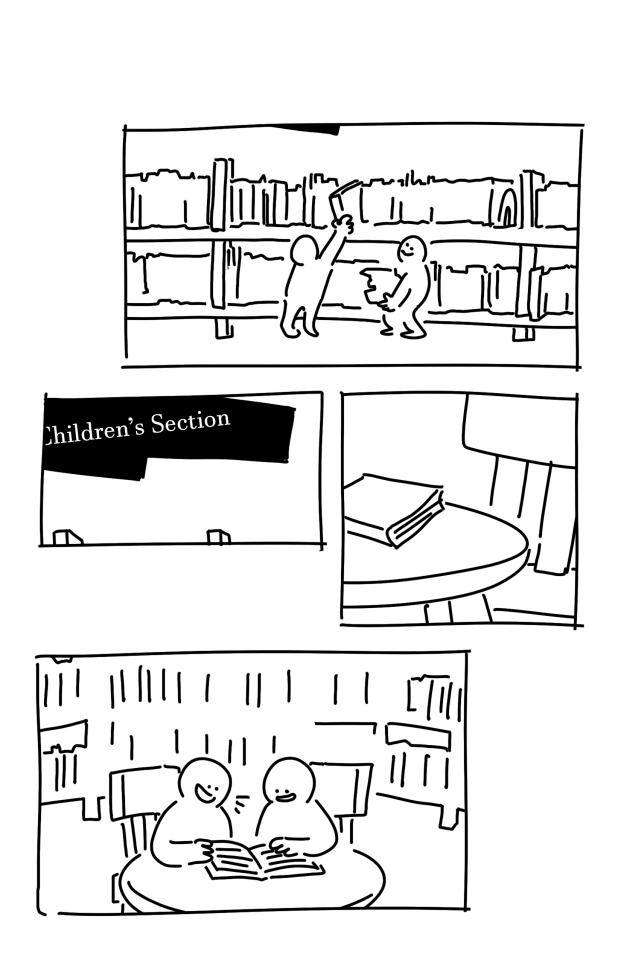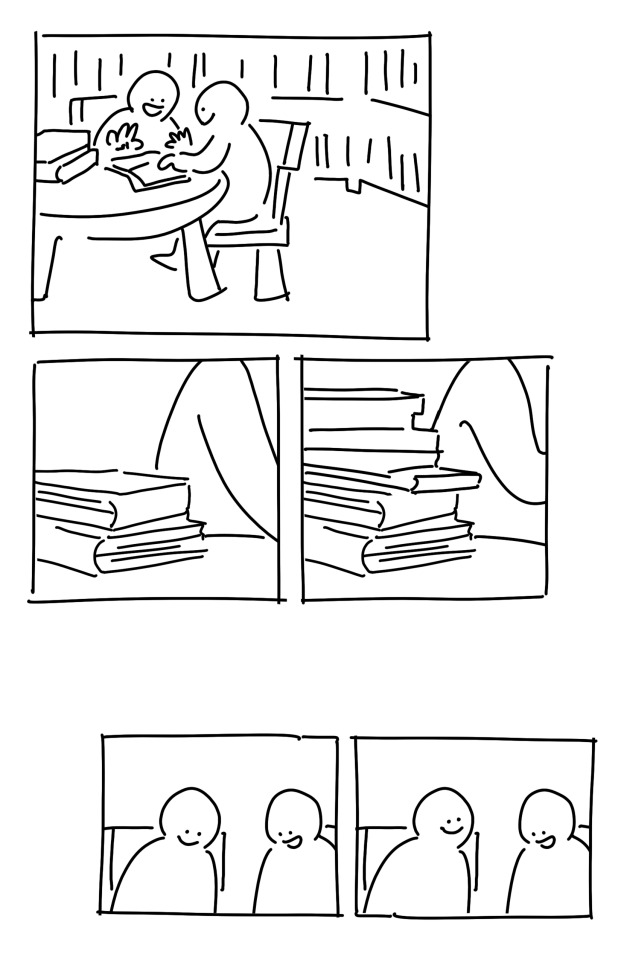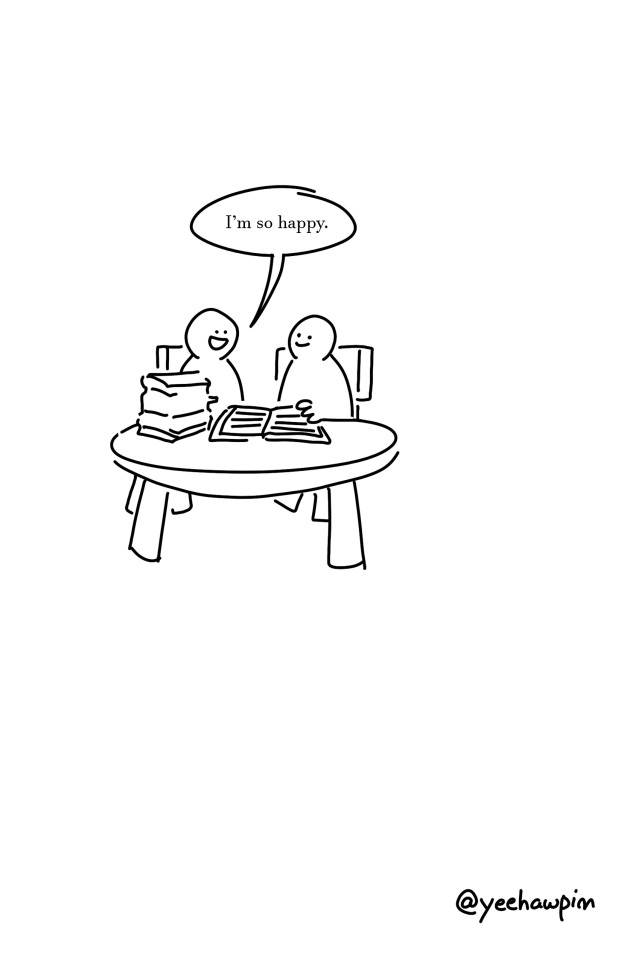Text
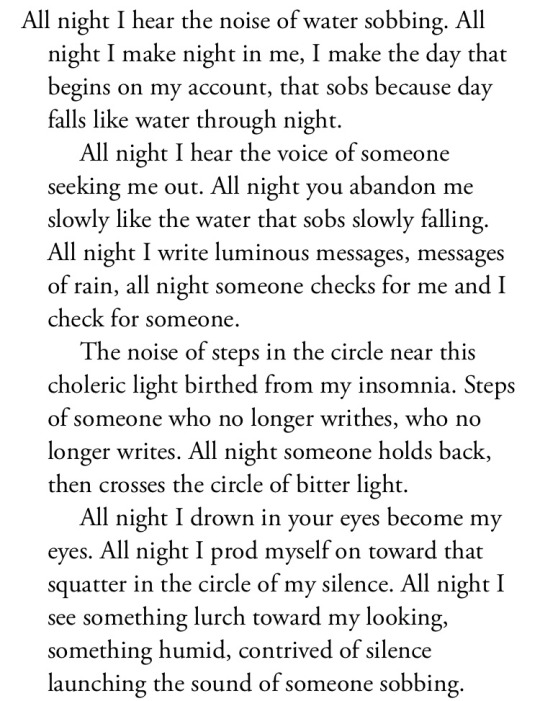

[All night I hear the noise of water sobbing.], Alejandra Pizarnik
260 notes
·
View notes
Text
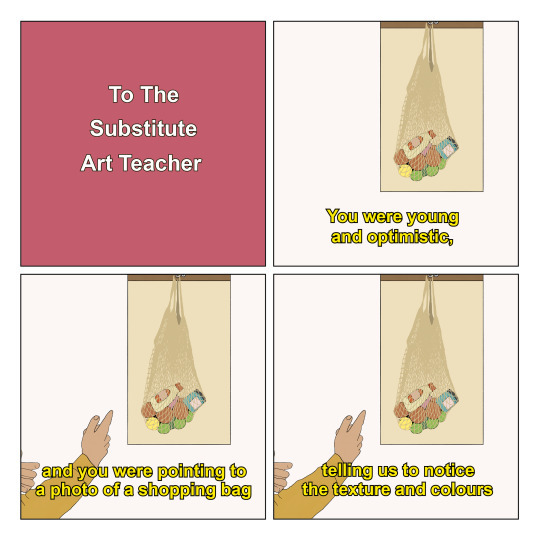
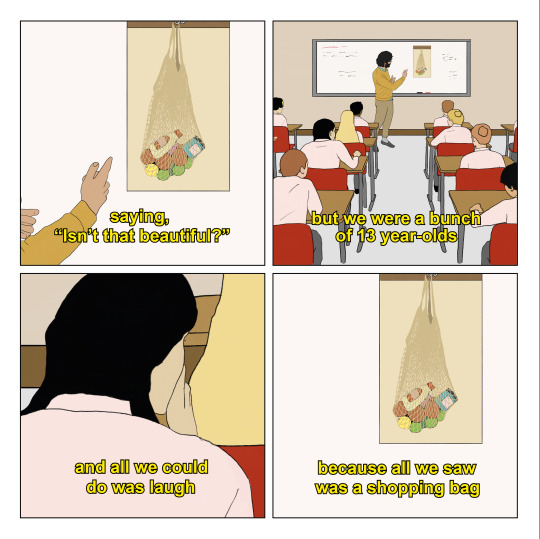
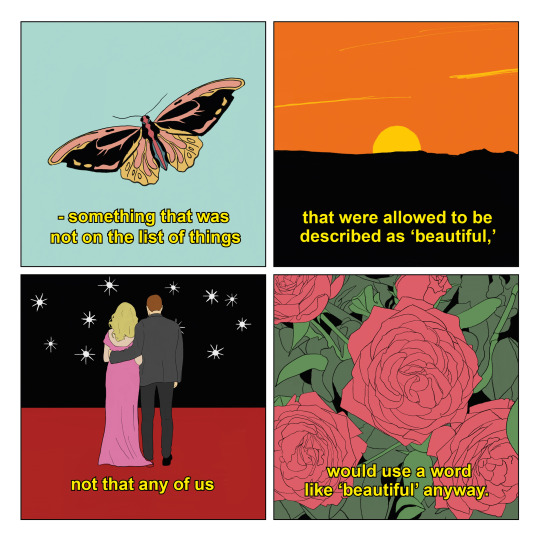
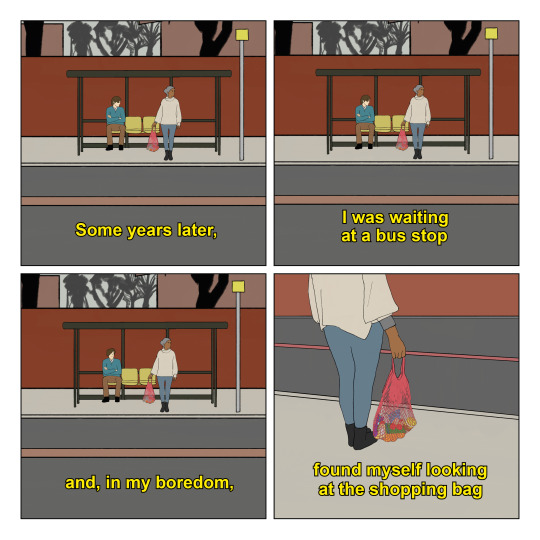
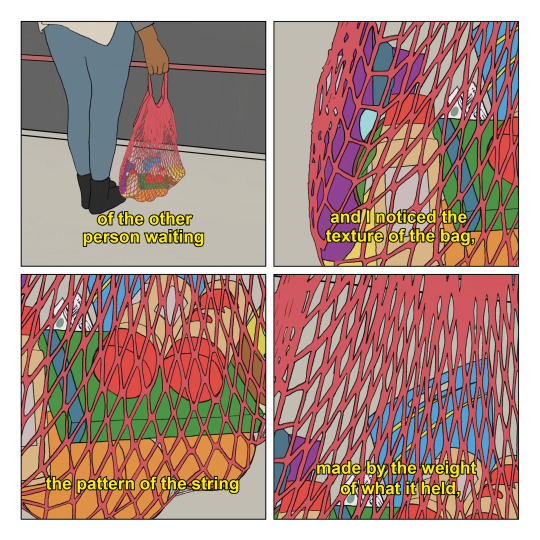
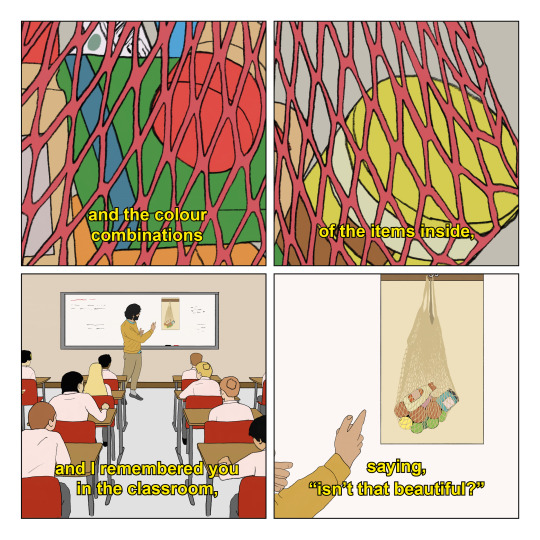
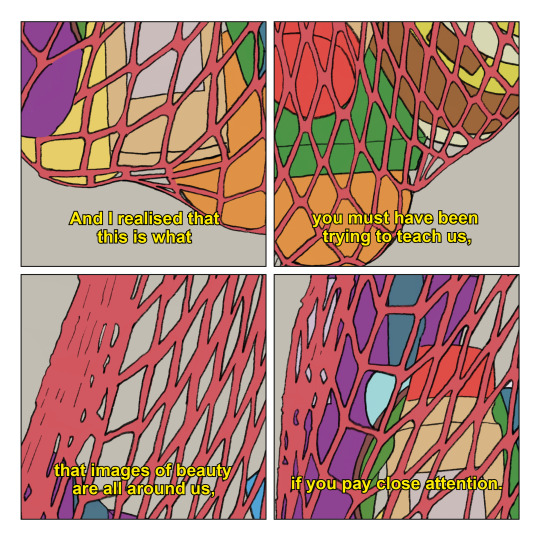

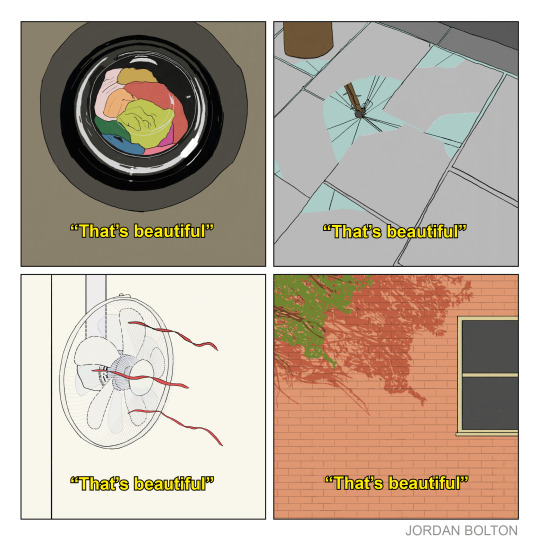
To The Substitute Art Teacher - Jordan Bolton
Pre-order my new book ‘Blue Sky Through the Window of a Moving Car’ here - https://smarturl.it/BlueSky
208K notes
·
View notes
Text




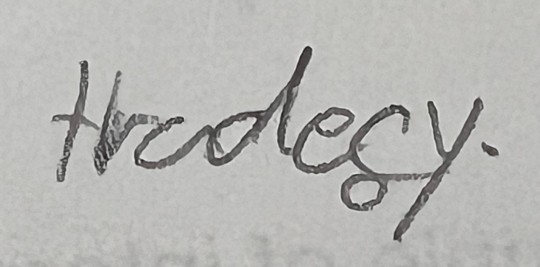
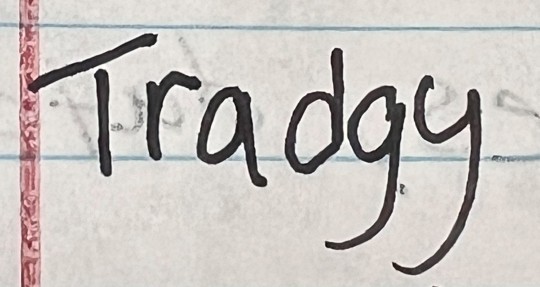
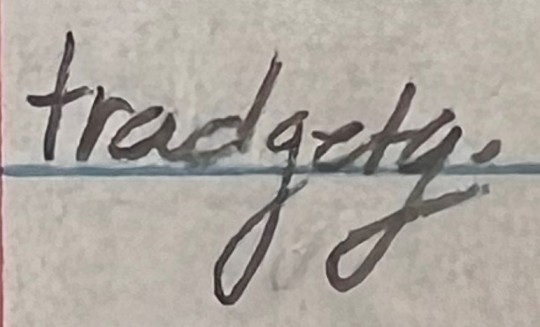
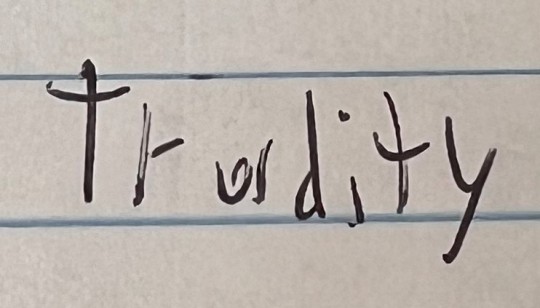
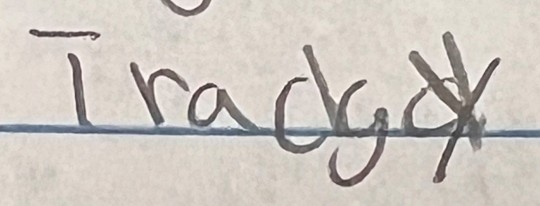
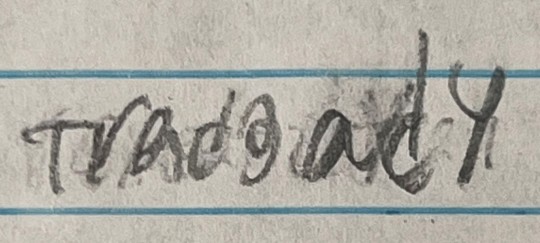





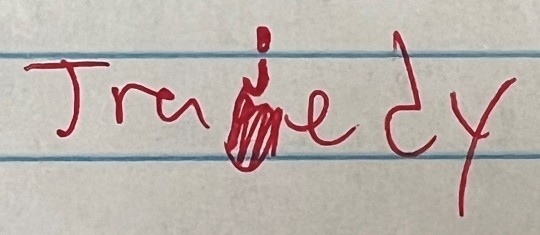




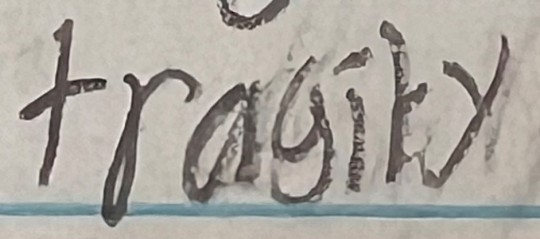
Another year, another group of my delightful ninth graders trying to spell the word "tragedy" for their Romeo and Juliet assignment.
Last year's collection
43K notes
·
View notes
Photo



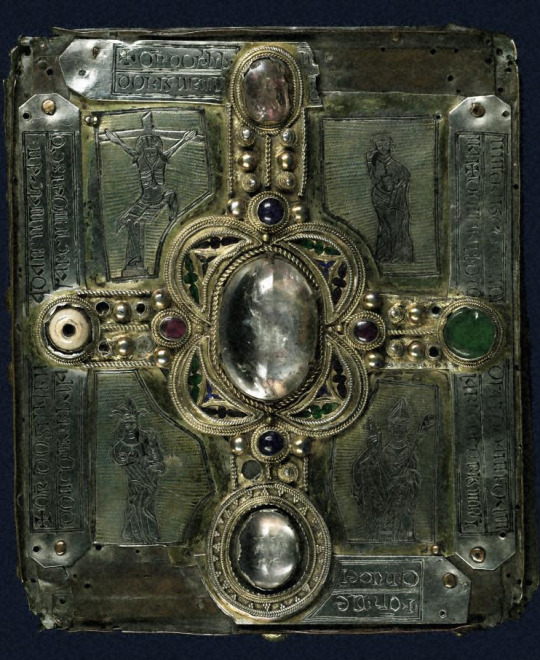


Medieval book transport
You are looking at two ‘wraps’ (top), the outside and inside of a box (middle), and a leather satchel (bottom). What they share is not just their old age (they are all medieval), but also the purpose for which they were made: to transport a book from A to B. The actual reason for transporting books in these objects varied considerably. The wraps are late-medieval girdle books, which were hanged from the owner’s belt by the knot. The text inside - which was often of legal or religious nature - could be consulted quickly and easily: just unwrap it and read. The box (and the ninth-century book inside) had a more exotic use: the package functioned as a charm for good luck on the battlefield, where it was carried in front of the troops by a monk. The satchel, which also dates from the ninth century, was just a bag to transport a book while on the go - it was popular among monks. Read more about these fascinating devices in my blog post “Medieval Books on the Go” (here).
Pics - Wrap at top: Stockholm, Royal Library (16th century, source); Wrap below it: Yale, Beinecke Library, MS 84 (15th century, source); Box: Dublin, Royal, Irish Academy, D ii 3 (8th/9th century, source); Satchel: Dublin, Trinity, College, MS 52 (Book of Armagh, 9th century, source).
5K notes
·
View notes
Text
Talking to people who aren’t REALLY into classics sucks sometimes bc it’s understandable enough yk, acquired taste and all that, but also it’s like I SWEAR I’m not being pretentious by saying my favourite novels are Frankenstein/Dracula/Les Misérables THEY GENUINELY ARE 😭 IM GENUINELY ATTACHED TO THE CHARACTERS AND GENUINELY HAVE REREAD THEM MULTIPLE TIMES (except for Les Mis. I am… still not finished my first read it’s a long-ass book ok man leave me be) AND IM GENUINELY EXTREMELY ARTISTICALLY INSPIRED BY THEM ALL IM SORRY I am but a simple history nerd who genuinely likes reading about old men with psychological problems and almost-human-cryptids that are metaphors 🙏🙏
#can relate#i do read books many genres#it happens that my fav all time is some classic lit#IM SORRY like those books change my life can't help it
335 notes
·
View notes
Text
"I often tell audiences that if we were to go door-to-door asking if we should end male violence against women, most people would give their unequivocal support. Then if you told them we can only stop male violence against women by ending male domination, by eradicating patriarchy, they would begin to hesitate, to change their position."
This is my problem with liberal feminism in general. Make no mistake, I used to be one who feels uncomfortable with the radical notion that to have an equal society for people of all gender, we have to abolish patriarchy. But after expanding my perception, and many times spent for learning and reflecting, we cannot have an equal sociey in patriarchal system.
https://a.co/iemQoAW
0 notes
Text
My Analysis on ‘No Longer Human’ by Dazai Osamu

I have finally read No Longer Human and I have so many thoughts concerning this novel that I felt called upon by the universe to write whatever this is. I’m going to avoid giving a summary and more so provide my opinions/analysis on the main character, Yozo and the themes surrounding the book. As such this includes my thoughts on Dazai Osamu as an author and his writing techniques. With that out of the way, let us begin!
Dazai Osamu committed suicide soon after writing this novel, this was the last work of his that was published. You need to have that in mind when reading because it lends you the mindset he likely had. I’ve also heard this is a semi-autobiography but I’m still unsure how much of the book’s content is fictional. I am going to say this bluntly, I did not enjoy reading this. I think this novel is brilliant but consuming it almost sucks the life out of you. If you ever intend to read ‘No Longer Human’, know that you will be diving into the psyche of a troubled man. Not something to enjoy per say.
It’s written from a 1st person point of view. We aren’t given the narrator’s name until five pages into the first notebook. Everything is said matter of fact but bleeds with emotion, perhaps because it feels as though Dazai himself is speaking to you. When it opens up rather dramatically with “Mine has been a life of much shame”, it’s personal. It’s sets the tone for a novel that feels like a long suicide note. Which it is.
Its presentation of its themes are monotone, plain, and chilling at times. It leaves you disturbed with how casually some things are mentioned. It feels alien, it feels ‘not human’.What does it mean to be human? And where is the line in which you cross something unrecognizable or not representative of humanity? Can your circumstances or environment push you to cross that line, is one simply born that way, or do you make the decision yourself?
Yozo is our narrator and everything is seen through his perspective. He is a character that struggles with depression, anxiety, and substance abuse. He is also a character that I found myself relating to more times than I’d like to admit. There are questions Yozo raises about humans that I have thought about before and may have agreed with a few years ago. I related with his struggle to form connections and many readers can as well. Therefore, I sympathized with him more than others might argue. People tend to confuse social anxiety with narcissism and granted I do believe Yozo can be narcissistic, there are many moments that I saw as him exhibiting anxiety. But then again, I am not a psychologist. I’m speaking from personal experience.
One aspect I believe people….don’t emphasize as much as I think they should is Yozo’s childhood. More specifically, the fact he was sexually assaulted multiple times at a young age by the servants in his home. And the fact he never told a soul about this because “I was sealed away from the world of trust and distrust. My parents at times displayed attitudes that were hard for me to understand.” Again, I am not a psychologist. But if you went through something traumatic like this and at a young age at that. It will largely affect how you see other people, it will cause you to be distrusting. You will question and doubt everyone, that is exactly what Yozo does. I also believe this is the root of misogyny Yozo displays in the novel. How I interpreted it was because his assault was first inflicted by a woman, he subconsciously took that portrayal forced onto him (2-faced, snake-like, inhuman) and projected that to women in general. I do not think it justifies what he says about women in this book but it's a perspective I feel as though many don’t consider.
This is also to be remembered when he sees Yoshiko being violated. His reaction to it was absolutely horrible and disgusting but keep in mind, he is a victim of SA. So the fact he mutters that “This is another aspect of the behavior of human beings. There is nothing to be surprised about.” And he runs away in fear, afterwards telling Yoshiko “It’s all right. Don’t do anything. You didn’t know enough to distrust others.” At that moment, he was not seeing his wife. I don’t know what he saw but it was enough for him to run away, terrified.
He should not have said that to Yoshiko. And think about, “You didn’t know how to distrust”. He then starts to question if trustfulness is a sin. It makes you wonder if he sees his former trustfulness as a sin, if that happened to him because he didn’t know how to distrust. And he’s treating this situation the same way he treated his own: by keeping it themselves and saying she didn’t know better.
Yozo’s a character that is spiraling in despair from horrible things that happen to him. But also from decisions that he makes. And Yozo isn’t a likable character but for me, I kept wanting his life to be better. I wanted him to be better but he doesn’t think he can be better. The reality is we need support from reliable people to guide and be there to lean on but you make the first step. Sex isn’t going to fix you. Drugs aren’t going to fix you. Alcohol isn’t going to fix you. You need to look within yourself and make the conscious decision to improve.
There might’ve been a point where you’ve been Yozo to some degree. Or maybe you know someone who’s a Yozo in your life. And it hurts for me to have such a self-destructive character repeatedly push opportunities for happiness away. By the end, Yozo is in a state of numbness and I could understand. It’s a scary feeling to see the world as gray, living everyday like nothing matters. You can’t laugh, you can’t cry. Everything just….passes. The very fact he concludes saying he’s currently 27 blew me away. Remember, there is a three time skip from when he gets released from the asylum to his last statements/paragraphs. Meaning he was 24 at the time. That means everything from when he started college to leaving the asylum, all of that occurred in the span of 5-6 years.
That’s insane.
In conclusion, you can accept this as a depressing read about human nature, the thoughts that plague us and monstrosities that lurk within. A story where our main character dissociates himself from humanity and speaks as though he’s a completely different species. You can sympathize with that or despise it, depending on who you are and where you’ve been in life. But you can also take this novel as a warning or perhaps a wake-up call, who knows. That this world can be cruel, life will hurl its thorns at you. But how you react, how you cope, who you surround yourself with is what’ll make the real difference. Don’t be Yozo. Fight to break out of that downward spiral and be someone who you think is deserving of love.
For it is through our perseverance that we become ever closer to being human.
33 notes
·
View notes
Text
cw: mentions of sa and csa
people who claim that no longer human is misogynistic kinda just. completely missed the entire point of women's role in the novel. like, it's far from a groundbreaking piece of feminist literature or anything, but to claim that yozo and his relationship with women is inherently disgusting is just... not 100% correct.
yozo felt as though tsuneko was the only other person in the world who felt as sad as him. yozo abandoned shizuko and shigeko because he felt like his presence in their lives was disrupting their happiness because shigeko said she wished her real dad would come back. though most of the criticism probably comes from yozo's marriage to yoshiko* because of how he referred to her as having some purity and innocence due to her virginity.
like yeah, that actually does sound genuinely gross and makes it seem as though he's infantilizing her, and if i ever saw something along those lines in literally any other context, i would be deeply concerned. but the thing is, there is a point to yozo's fascination with her innocence, as well as his "disinterest" in her after it was taken away.
yozo is fascinated with yoshiko's innocence and overly trusting nature because he is the exact opposite. he lost his innocence and his ability to trust in people, at least partially, due to the fact that he was a victim of CSA.
so, when yoshiko was SA'd, he did nothing to stop it. many people criticize him for this point exactly, but the passages following show how much emotional distress the event causes him. the last paragraph of the book is,
this year, i am twenty-seven. my hair has become much greyer. most people would take me for over forty.
and on the same page as yozo witnessing the crime against yoshiko,
my hair turned prematurely grey from that night.
the rest of the book is all about the guilt and despair yozo feels for not being able to defend yoshiko from that situation. but why did he do nothing? because after being confronted with a situation that made him feel powerless as a child made him feel powerless as an adult.
idk where i'm going with this honestly. this was just supposed to be a rant so that's why it feels so incoherent and the first paragraph isn't structured at all, but somewhere along the way, this started to take on elements of an actual well-thought analysis.
though i suppose i can say that the way no longer human was written can be summed up by the paragraph about yozo's perception of prostitution. "i could never think of prostitutes as human beings or even women" sounds HORRIBLE in literally any other context, but in the context of no longer human, it actually makes sense.
i could never think of prostitutes as human beings or even as women. they seemed more like imbeciles or lunatics. but in their arms i felt absolute security. i could sleep soundly. it was pathetic how utterly devoid of greed they really were. and perhaps they felt for me something like an affinity for their kind, these prostitutes always showed me a natural friendliness stripped of high-pressure salesmanship, for someone who might never come again. some nights i these imbecile, lunatic prostitutes with the halo of mary.
(also partially off-topic, but yozo's relationship with prostitutes early on in the book was his own way of reclaiming his sexuality)
i suppose that the point is that context matters, especially in the case of no longer human. people's criticisms of this novel just seem to simply out of poor reading comprehension (this is why i was mad that no longer human is now a "booktok" book. people on booktok just seem to have very poor reading comprehension skills overall, and i'll probably rant about that on its own some other time).
*an actual valid criticism of yozo and yoshiko's relationship would be the fact that yoshiko was only seventeen and yozo was in his twenties. then again, i don't know what the age of consent laws in japan were like at the time
67 notes
·
View notes
Text

literally pulled an all nighter for this. get yozo’d idiot
RBS APPRECIATED!!!!
17 notes
·
View notes
Text
“You shouldn’t self-ID as ADHD/autistic, you’re turning a very real mental condition into a trend” Ok then stop saying delulu. Stop speculating on which cluster C personality disorder the criminals you hear about on the news have. Stop saying “schizoposting” and “acoustic” and “is it restarted?” Stop using “psycopath” and “sociopath” as catch-all ways of calling someone a bad person. Stop saying “the intrusive thoughts won” when you bleach your hair and then turn your nose up at people who suffer from very real, very scary urges of physical/sexual violence. Stop saying “I’m so OCD” as a way of calling yourself neat. Stop treating BPD/ASPD/Bipolar as inherently abusive. Stop saying “OP I am living in your walls” without tagging for unreality. Stop diagnosing complete strangers you’ve never met on r/AITA with NPD.
You first. If you don’t want our disabilities to be treated like trends then stop belittling and minimising them. I’ll NEVER judge a person for trying find labels for their symptoms when an apathetic, racist, sexist, ableist healthcare system refuses to. But I will absolutely judge a hypocrite. Which a lot of you are
62K notes
·
View notes
Text
can everyone be normal about masculine presenting trans women. for the love of god can everyone please be fucking normal about masculine presenting trans women.
27K notes
·
View notes
Text
kafka was so right i literally could have built the pyramids with the effort it has taken me to cling onto life and reason
9K notes
·
View notes
Text
NLH pt 1: Yozo Character Breakdown
Yozo’s an interesting character for a number of reasons. I wasn’t exactly sure how to talk about what makes him so interesting in an organized fashion, but I’m going to go with the three main things that define him as a person: alienation, self-hatred, and fear. (In case you weren’t sure if No Longer Human was that depressing, Yozo’s the protagonist. And he doesn’t actually improve by the end.) Spoilers ahead, everyone, and TW for depression, suicide, addiction, and sexual assault.
Firstly, his alienation from others. Yozo defines himself by how he doesn’t feel like a human being, not like everyone else, and this alienation is a source of great pain for him. He’s got several reasons for considering himself a pretender at being human, including:
he feels everyone is practical, while he yearns for the “extravagant and unusual”
he doesn’t feel hunger, so he has to force himself to eat
he doesn’t understand the struggles of others or what they’re thinking
in return, he feels humans can’t understand him
he doesn’t trust others at all, but simultaneously believes that if he could understand how to be happy while also being a liar and deceiver, he would have never been so scared of other people
he feels as though he’s always putting on a performance for others
I simulated an exaggerated concern…
I clothed my face in the gentle beguiling smile…
he has this contempt for everyone around him, thinking they’re all fools
feels as though he never forms an attachment to things he owns
note: I don’t actually believe him when he says this, for reasons I’ll explain later.
he doesn’t understand the nuances of conversation
feels as if he’s never had a friend
All of these things combined to form a profound disconnect between Yozo and the people around him. Because he feels as though he’s fundamentally different from others, he doesn’t ever feel understood or seen. And what Yozo wants, more than anything, is for someone to understand him. On a cursory read, it seems that Yozo doesn’t have much in the way of actual motivations or drive. But running underneath all of his actions and thoughts is this deep yearning for someone to understand him.
He only really reveals this once, when he draws self-portraits. He puts up this front of being a jokester, which he calls his “clowning”. But when he draws these self-portraits, he does them honestly, to depict what he really thinks of himself. He wants to show them to people–but he’s far too afraid that not only would they recoil in disgust, they might just think his pictures are just part of his clowning. And that, above all, would be the worst thing.
This ties into his second characterizing emotion: fear. Yozo lives in a state of constant terror and anxiety. He’s scared of many things, including:
that he’s the only one who isn’t human, that he’s alone in his struggle
other people being angry at him
that people will realize he’s not human, and reject him
interacting with strangers (paralyzing social anxiety)
the largeness of logic
being physically alone
tragically, he’s scared to accept happiness
This ends up manifesting as him not being able to say no, defend himself, or argue. Consequently, he does things he doesn’t really want to do, which cause him further unhappiness, and is never able to actually ask for what he wants. He lives to please others at all costs. His paralyzing fear defines him and confines him.
As long as I can make them laugh, it doesn’t matter how, I’ll be alright. If I succeed in that, the human beings probably won’t mind it too much if I remain outside their lives.
He says this in the beginning, and follows this philosophy for the entire book. At the root of all is Yozo’s self-hatred, because he believes that he isn’t worth anything at all.
As long as his antics can amuse others, he’s not embarrassed that he fails on purpose. He’s so desperate for the approval of others, because he’s not going to get it from himself, that he writers a funny essay, then follows his teacher into the staff room to make sure that he found it funny. And he’s incredibly attached to his trauma. He talks about having a “wound” (Dark Era flashbacks, anyone?) that appeared when he was born and only got deeper as he grew older and sadder.
…the wound has gradually become dearer to me than my own flesh and blood…
Yet at the same time, he feels like a fraud. He’s pretending, after all, pretending to be a failure and pretending to be happy. He pastes a little fake smile on and never lets it come off. He fancies himself an accomplished actor, deceiving everyone, but it’s still not a source of pride or validation. It’s just another sad fact of his tortured existence.
Here’s the thing: Yozo’s also the king of lying to himself. It’s especially ironic when you consider that one of his defining childhood experiences was watching a bunch of servants talk shit about a speech then turn around and say, to the speaker, that the speech was great.
Why do I think this? Well, let’s look at his first (and only?) love: Tsuneko, a deeply unhappy woman whose husband was in prison, but shacks up with Yozo anyway. She tells him about her own trauma, and he says this about her:
“I feel so unhappy.”
I was sure that this one phrase whispered to me would arouse my sympathy more than the longest, most painstaking accounts of a woman’s life.
When Tsuneko doesn’t, he’s disappointed. It’s because that’s the one phrase Yozo wishes he could say to someone, and have them understand. But he loves Tsuneko regardless, because her unhappiness mirrors his. It’s not a perfect understanding, but it is understanding and empathy. But he never really states outright that this is what he wants–instead, he buries under self-deprecation until even he doesn’t know what he really wants.
Like I mentioned at the beginning, Yozo also says he never feels regret after losing something because he was never attached to it. (Dark Era flashbacks again.) Yozo, you liar. He says this because, after he hooked up with Tsuneko, his friend was going to kiss her, and he says he wouldn’t mind. He absolutely would mind, the very thought of losing Tsuneko makes him sad. And when they commit double suicide but he is the only one to survive, he cries and grieves for her.
And when his wife is sexually assaulted later, he tells himself the loss of her virtue and her trusting nature isn’t something he regrets. But it is. Yoshiko’s trusting nature defined her, and her ability to believe the best in people. After she is assaulted, she loses that characteristic, and it makes Yozo incredibly depressed. It sends him spiraling into a morphine addiction, actually, and an affair with a pharmacist. Yozo, king of terrible choices.
In short? Yozo probably would have benefited a lot from therapy. As well as his wife, because she was assaulted, and then Yozo made it all about him.
Footnotes for this post can be found here, where I talk about something that was unclear in Yozo’s characterization.
Hope this was helpful to someone! In the second part of this review, I’ll be talking about themes and motifs, so stay tuned.
32 notes
·
View notes
Text
if more people can decondition themselves from seeing weight gain and fatness as immoral it will save me a lot of headaches
10K notes
·
View notes


